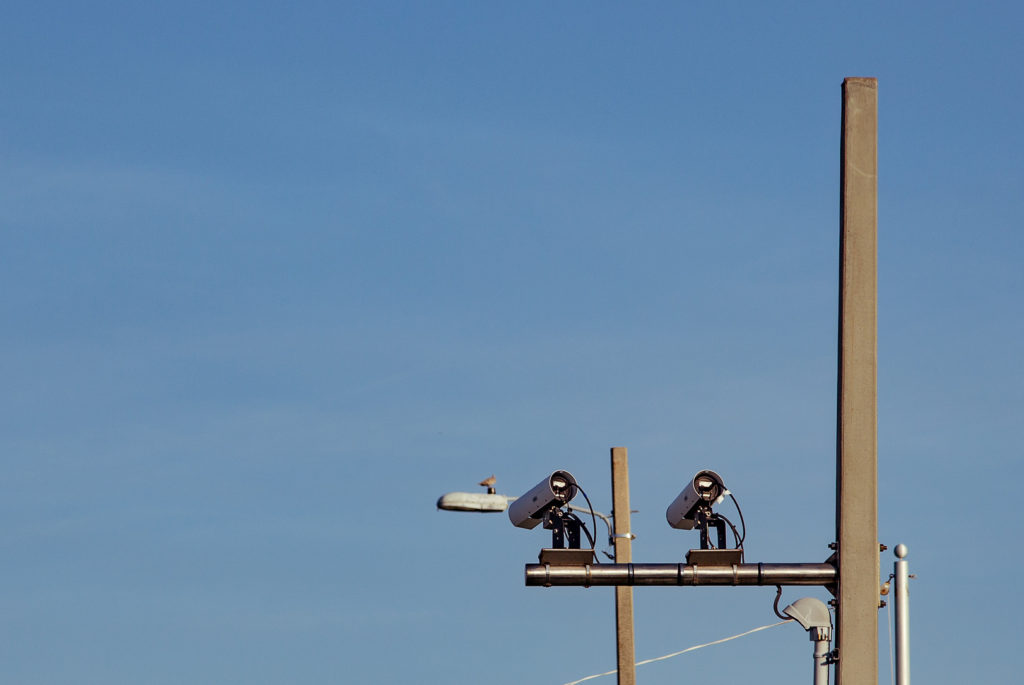One federal agency is working to expand its data collection efforts by installing license plate readers on road signs in an attempt to use “mass surveillance” to catch criminals. The unfortunate part of measure is it will also collect data on innocent members of the public for individual tracking.
Months ago, there was a challenge to Fairfax County’s methods of data stored by police with automated license plate readers after being dismissed from court in 2016. The American Civil Liberties Union (ACLU) argued to the Virginia Supreme Court the data taken with the time and place attached is an invasion of privacy and gives police the ability to track a person’s movements, thus violating Virginia’s Data Act wherein it states there, “shall be no private information system whose existence is secret,” being maintained by the government.
The Virginia Supreme Court ruled that video captured by police which includes a location of the person is also considered personal information under the Act. Though, the court expanded its analysis to the full photos snapped by the license plate readers, which show the vehicle, its immediate surroundings, the time the photo was snapped, and location information. According to Judge Cleo Elaine Powell, the information would, “‘afford a basis for inferring personal characteristics’ or the presence of an individual at a certain place and time, which the Data Act prohibits.” Therefore, the court concluded that the photos qualify as personal information.
In 2013, then-Virginia Attorney General, Ken Cuccinelli said that Virginia State Police could not legally keep the data collected from license plate readers, explaining further that, “If the information is not directly related to a criminal case, it ‘may not lawfully be collected.’” The state police now erases license plate data every 24 hours.
There was an attempt in recent years from the Virginia General Assembly to pass legislation which would have limited the data retention by law enforcement – providing that a criminal or administrative warrant had been issued to begin data collection – to seven days, but then-Governor Terry McAuliffe vetoed it despite wide bipartisan support.
Nevertheless, according to a report on recently released U.S. federal contracting data by Quartz, the Drug Enforcement Administration (DEA) will be expanding the footprint of its nationwide surveillance network with the trailer-mounted speed displays with license plate readers attached to them. So, the next time a driver passes a road sign with a digital readout showing the speed, it may be capturing license plate data.
Interestingly, the report also notes that an FBO concealment shows a related contract was struck by the DEA with a small machine shop in Virginia that may be used to conceal the license plate readers with signs.
Dubbed the “National License Plate Reader Program,” the DEA launched its effort in 2008, being publicly revealed in a congressional hearing in 2012. The DEA’s fiscal year 2019 budget describes the program as “a federation of independent federal, state, local, and tribal law enforcement license plate readers linked into a cooperative system, designed to enhance the ability of law enforcement agencies to interdict drug traffickers, money launderers or other criminal activities on high drug and money trafficking corridors and other public roadways throughout the U.S.,” primarily along the southwest border region, and the country’s northeast and southeast corridors.
As a plot of nearly any crime drama, a criminal always commits a crime, obviously, before the police know about it. As the general evolution of crime fighting is presented with advanced technology, there is a problem of what is the edge of supporting law enforcement and an extreme privacy overreach.
Law enforcement advocates argue that if one commits a crime and does not call attention to themselves, it takes longer for them to be caught. Now, the emphasis of the program is not just on catching criminals, but know who potential criminals are before they commit a crime.
The ACLU’s Maryland chapter found that only 47 out of every one million plates scanned by police in the state, or 0.005 percent, were linked to a serious crime. In Atlanta, captured data from 786,580 license plated out of 128.5 million in 2017, 0.6 percent, were suspected of having a connection to a crime. In Austin, 0.01 percent of 22 million license plates, 3,200, were linked to alleged criminal activity.
Still, it’s not the data collection itself that’s the issue, it is what authorities do with that information next. What it means is the entire population having their every single movement tracker.
So, do the benefits of license plate readers, which cast an astoundingly large net over criminals in the community, outweigh the fact that the community has a net cast over them?

